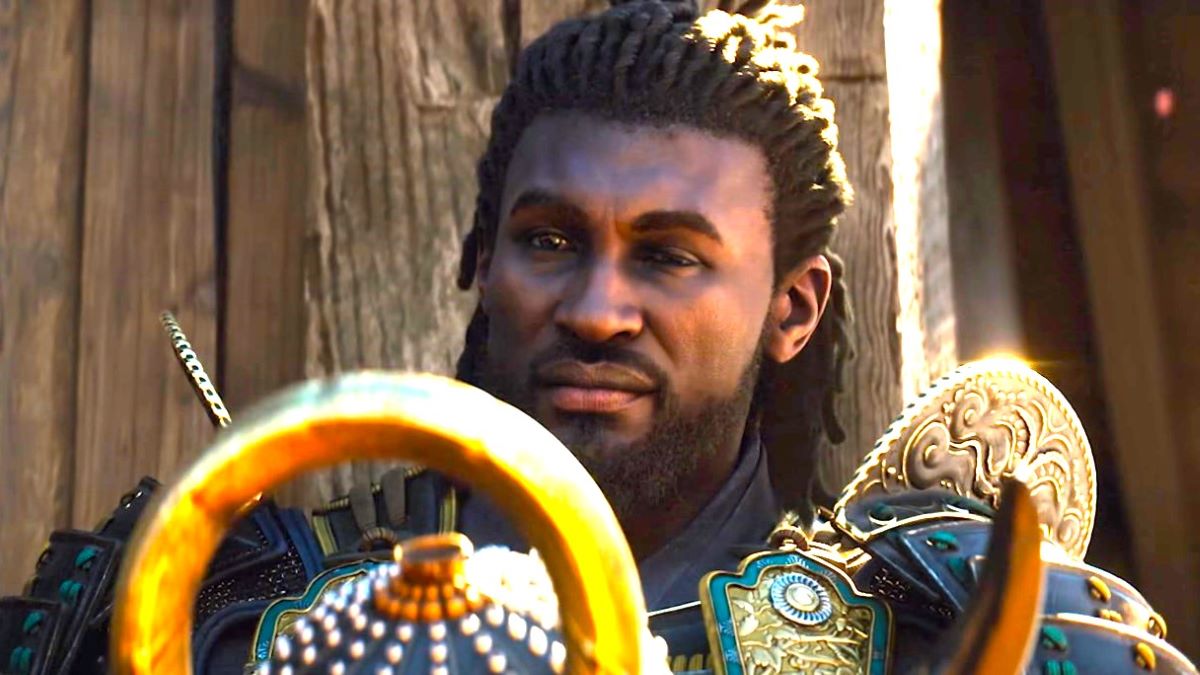Ever since the Assassin’s Creed franchise debuted in 2007 fans have been demanding a game set in feudal Japan. On the surface it’s a no-brainer: the assassins are effectively ninjas already and there’s a wealth of fascinating historical events to work into the plot. Now, with the newly unveiled Assassin’s Creed Shadows this dream has come true.
The game will feature two protagonists, a female ninja (and soon-to-be Assassin) Naoe and Yasuke, a real-life historical figure famed for being a Black samurai in feudal Japan. In the trailer Yasuke is depicted as a force to be reckoned with, eschewing sneaking around for busting heads and smashing down walls in a dramatic suit of samurai armor.
Depressingly but inevitably, the sight of a prominent Black hero in feudal Japan has drawn all the unpleasant people you might expect from the woodwork to moan about the game being “woke”. One of the core arguments is that Shadows is being historically inaccurate by showing Yasuke as a samurai. So, was he?
The real-life Yasuke
Yasuke was objectively a real person and is mentioned in multiple primary sources dating from the Sengoku period of Japanese history. Much of his life remains a mystery, but it appears he arrived in Japan in 1579 in the service of Jesuit missionary Alessandro Valignano and his skin color and stature immediately drew attention.
Yasuke is the first person of African origin to appear in Japan’s historical record and was almost certainly the first Black person most Japanese people of the time had ever seen. In 1581 Valignano met Oda Nobunaga, then the most powerful individual in Japan. Nobunaga had already heard about Yasuke and summoned him.
Accounts state that Nobunaga initially refused to believe his skin color was natural and believed it might be the result of ink. When it became clear that wasn’t the case Nobunaga took a shine to him, giving him the Japanese name Yasuke, employing him as his retainer, and bequeathing him a sword and a house.
Yasuke spent the next year traveling with Nobunaga, with his distinctive appearance drawing attention wherever they went. On 21 June 1582, Nobunaga was betrayed and attacked and, realizing his defeat was inevitable, committed seppuku. Yasuke fought on and was injured but not killed. Five months later he appears to have recovered but then promptly vanishes from the historic record. His ultimate fate is unknown.
Was Yasuke actually a samurai?

Without the discovery of further primary accounts of Yasuke’s time in Japan it’s impossible to know for certain whether he was considered as a samurai by his contemporaries but most historians lean towards him being one.
Evidence in favor is we know for certain that Yasuke was under Nobunaga fuchi, meaning he was a warrior being paid a rice stipend (or similar), which would align him with other confirmed samurai of that time. We also know that Nobunaga gifted Yasuke a wakizashi short sword soon after they met. Contemporary accounts describe Yasuke fighting with a sword and surrendering it – this may have been the wakizashi or a longer sword Nobunaga gave him later.
It’s also important to note that in this time a “samurai” isn’t an official title like a knight, but rather a description of your function or role. As such, being a sword-wielding bodyguard under the direct employ of Nobunaga would make Yasuke fit the role of a samurai at the time and indicates a status on par with other known samurai. Plus, anyone who saw Shōgun will know that it wasn’t unheard of for foreigners to become samurai.
Arguments against Yasuke being a samurai are a little more flimsy. There’s no evidence of Yasuke being granted land or wearing two swords (though the two-sword rule for samurai only came into force in 1629). Yasuke also certainly wasn’t Japanese nobility, though the Sengoku period saw more flexibility in who could become samurai, with some from peasant backgrounds rising to the position.
In summary, everything we know about Yasuke’s time in Japan indicates that – at minimum – he fulfilled all the criteria in this specific time period to be considered a samurai. We can’t know if those around him saw him as one, but what we know about his life means it’s not historically inaccurate for Assassin’s Creed Shadows to depict him as a samurai.











Published: May 16, 2024 07:09 am